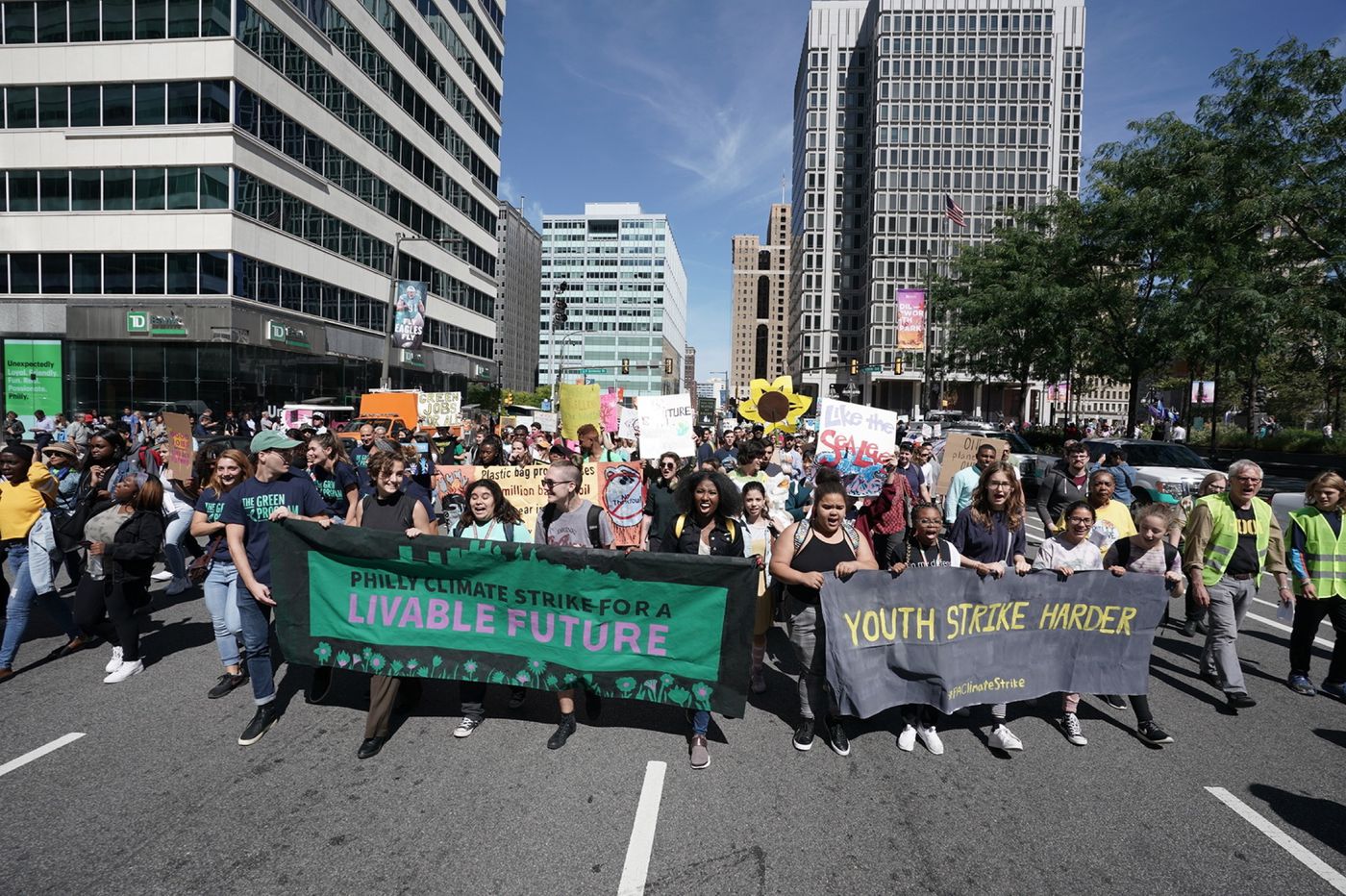
On Sept. 20, 2019, over 3 million people worldwide participated in the Global Climate Strike, making it the largest day of action for addressing climate change. The historic strike served as a message: increasing numbers of people want to see world leaders doing more than simply sharing words of sympathy for climate tragedies. While the protest gained social media praise from various politicians, it was not enough to pass a Green New Deal. For this reason, the primary organizers of the previous climate strike, Sunrise Movement, have been pushing for another large-scale day of action on Dec. 6.
The city of Philadelphia will be having their own youth protest on Friday, organized by Sunrise Philly, 350 Philly and Climate Strike PA. Set for 11 a.m. to 2 p.m. at City Hall, the event is expected to be just as popular as the previous one. The list of speakers features a wide array of perspectives, from Philadelphia public school students to a Pennsylvania State House Representative.
During Philadelphia’s last climate strike, thousands showed up, marching up and down the streets of Center City demanding change. A large portion of the demonstrators were high school and college students. For those attending public school, their attendance at the strike meant an unexcused absence, a decision that led to public criticism of the School District of Philadelphia.
This time around, SDP Superintendent Dr. William Hite released a statement that excused absences for the climate strike as long as students brought in a note of approval from their parents or guardians. In a letter directed to parents, Hite stated, “As a school district, we encourage our students to be actively engaged citizens who are knowledgeable about current events… Above all, we want them to know we value their voices and their right to self-expression.”
Hite’s letter further formally addresses climate change as an issue that has “very real consequences on people’s lives.” This decision has received praise from students and faculty alike, both groups agreeing that it is a great first step towards getting leaders to at least acknowledge the legitimate threat climate change poses.
However, skeptics of this statement remain, as does doubt on the true effectiveness of youth-driven protests like the climate strike. President of Drexel Democrats Rudi Weinberg commented on the drawbacks of youth-organized efforts, stating, “I do not think that our protests are as effective as they could be because we are not yet as organized as older generations. We do not have the money to properly lobby our government, which sadly is what is required with many lawmakers to be taken seriously.”
Sunrise Drexel HUB Coordinator Melanie Attieh, on the other hand, feels no reluctance on the power of these movements. In an interview, Attieh stated, “Looking back, history shows us that societal transformation only comes when millions of people take to the streets to demand it. The fact that we have about 10 years to change doesn’t give me hope, but seeing our youth skip school to protest for their lives and futures really puts everything in perspective, and not just for me but for the city.” As a member of Sunrise, Attieh helped organize a strike in her hometown of Bethlehem, PA for the September day of action and is excited to spread the Sunrise legacy to Drexel as a new student organization.
Aside from Drexel, our UPenn neighbors on the other side of University City have been working closely with climate change related issues through various student organizations, one of them being Fossil Free Penn. The organization’s main mission is to get answers on the nature of Penn’s endowment funds from the fossil fuel industry. Ultimately, students and faculty want their concerns addressed through a town hall on where this money is going and what the university is doing to lower carbon emissions. So far, students have been holding weekly sit-ins called Fossil Free Fridays to raise awareness.
As club member Clare Epstein put it, “It’s the most accessible way for students to get involved in activism because you literally only need to go to College Hall and sit. By way of just being there, you’re supporting Fossil Free’s demands.” Fossil Free Penn has recently escalated their strategy, ultimately shutting down a Board of Trustees meeting on Nov. 9.
When asked about the importance of attending the climate strike, Epstein stated, “Student activism is crucial to getting our goals across, including this Friday. I think missing class is only a slight inconvenience in terms of showing your support for the climate justice movement.”
Whether or not these strikes will be critical in bringing about a new age of climate justice reform is too challenging to tell now. However, it seems that students and young people across the world are ready for the challenge of advocating for their future regardless. As climate change is rising as one of the top issues that American voters care about, perhaps the topic will become too mainstream for politicians to ignore.


